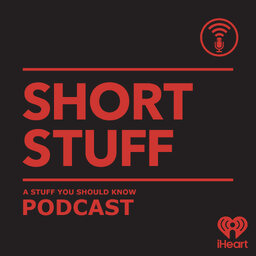Short Stuff: Feed A Cold, Starve a Fever
You know that old adage that you should feed a cold but starve a fever? It’s an ancient idea and what’s surprising is that it’s kind of correct.
In 1 playlist(s)
Stuff You Should Know
If you've ever wanted to know about champagne, satanism, the Stonewall Uprising, chaos theory, LSD, …Social links
Follow podcast
Recent clips

Selects: How Free Range Parenting Works
51:15

How the Flexner Report Changed Medicine
37:50

Short Stuff: Safety Coffins
14:00
 Stuff You Should Know
Stuff You Should Know